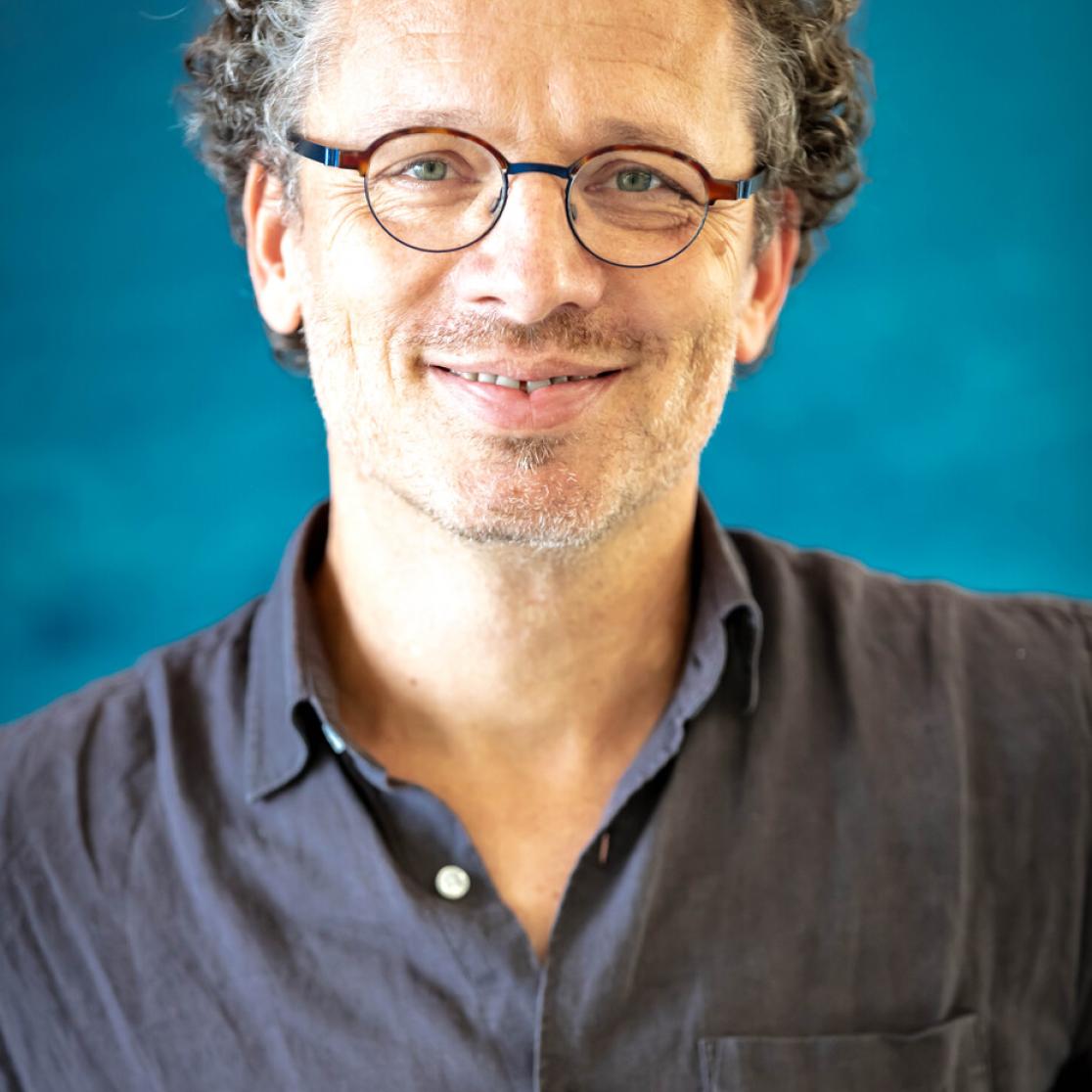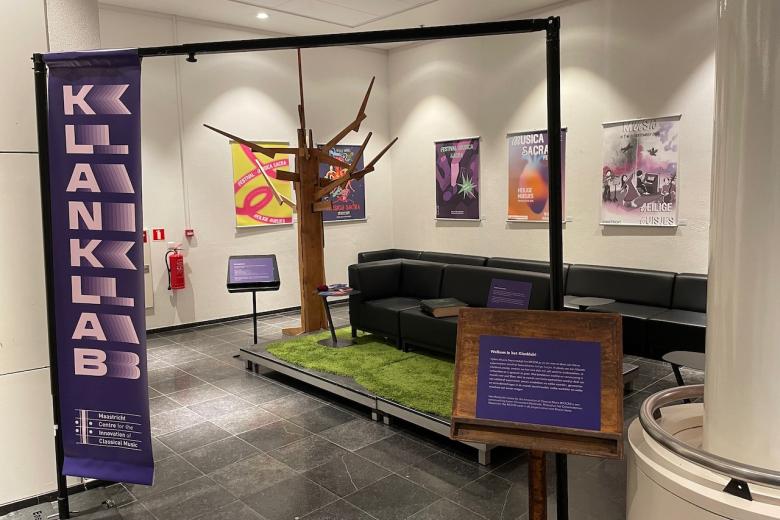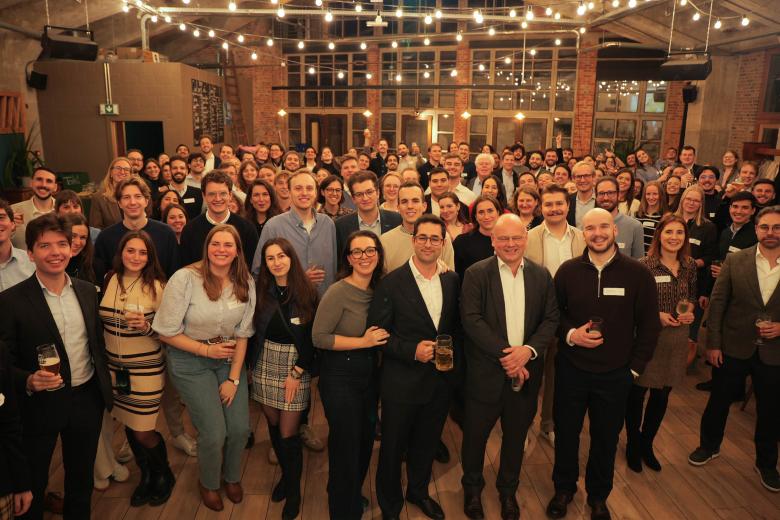Trauma-free care for sick children
Drawing blood, inserting an IV, or examining the ear; even seemingly simple medical procedures can cause anxiety, pain, and stress in children. According to pediatric intensivist Piet Leroy, comfort and trust are just as important as the medical treatment itself. He is therefore researching how healthcare providers can offer trauma-free care and in what ways they can learn to apply comfort care. Leroy has been appointed as a professor of "procedural comfort care, sedation, and analgesia in children for trauma-free healthcare delivery," and will deliver his inaugural lecture on March 8th.
This article was originally published by MUMC+.
Pain and anxiety are inevitable in illness and treatment, but for children, these emotions can be intensified by medical procedures. This is referred to as procedural distress. "A sick child doesn't understand why an examination or treatment is necessary and will resist," explains Leroy. "Soon, force may be used because healthcare providers want to thoroughly examine and treat the child. But being restrained even once to look in the ears can be a very unpleasant experience for a child that they will remember." Experiencing procedural distress in young children not only has immediate consequences, such as extra pain and anxiety at that moment, but it can also hinder healing and lead to distrust of healthcare providers.
Accumulation
Since his early years as a pediatrician, Leroy has been focused on reducing procedural distress. Initially, by putting children into deep sleep for procedures that are obviously very painful or unpleasant, so they don't experience them consciously. Later, a personal experience led to a shift towards procedural comfort – even for procedures that objectively don't cause much pain. "My daughter survived a serious illness thanks to good medical care. But half a year after her treatment, she became completely panicked when the preschool teacher wanted to give her a band-aid: she received a band-aid after every injection in the hospital. The psychological impact of the accumulation of small procedures lasted for a few years." Leroy then devised solutions for practice, conducted research on them, wrote guidelines, established a knowledge center, and now holds a professorship. "My daughter always says that thanks to her, I was able to build my career," Leroy laughs.
Comfort care
It's not medical technique, but the relationship with the child and the parents that forms the basis of comfort care. "There are plenty of relatively simple solutions that can take us a long way. For example, children at the Maastricht UMC+ receive numbing cream before almost every injection. But the cream only takes away the pain, not the fear. For that, we need to connect with the child and, together with the parents, find out what the child is feeling. Does it reassure the child to experience first that the skin being numbed indeed feels different than the last time? Or shall we distract the child so it doesn't notice what's happening with the needle? The technique of comfort care isn't in the numbing cream but in using the right words, learning to distract, learning to involve a child in what you're going to do. And to figure out what offers comfort and trust to each child anew."
Embrace vulnerability
A certain technique can only feel like comfortable care when there is trust between healthcare providers, child, and parents. This is not self-evident because both parents and the child are vulnerable: they are uncertain about the illness, treatment, or prognosis, about the meaning of medical terms, and about how the illness affects the family. But the healthcare provider is also uncertain: comfort care is not a "trick," but different for each child. Not for nothing is "embrace vulnerability" the title of the inaugural lecture with which Leroy accepts his professorship. "People always resolve uncertainty in relation to others. If healthcare provider, parent, and child can share their vulnerability, a balanced relationship is formed, and it becomes clear where they can complement each other for a more pleasant and better treatment of the child."
PROSA knowledge network
Leroy hopes to make procedural comfort care the standard. It's an immense challenge, not least because healthcare providers aren't trained to see patients not only as sources of concerns, fears, and questions but also of knowledge, possibilities, and experiences. To teach healthcare teams the basic knowledge and skills for trauma-free care for children, he founded the PROSA knowledge network. He researches what expertise healthcare providers need to consistently apply comfort care and incorporates that into the education provided by the knowledge network. "For example, we make recordings in the treatment room of real situations. Then we jointly - healthcare providers, parents, and the child - look at what happens. Why was it done well? People do a lot of things unconsciously. But by unraveling how they navigate together to make a procedure successful and comfortable, you discover meaningful strategies that you can then teach to others. The video material itself is excellent teaching material." However, pain and anxiety will not always be avoidable. "But I hope to achieve that considering fear and pain becomes common practice. That with every step we take, we consider what it means for the child and accommodate that. And above all: that we learn to provide care without causing trauma."

Piet Leroy is a pediatric intensivist at the MosaKids Children's Hospital of Maastricht UMC+ and a professor of procedural comfort care, sedation, and analgesia in children at the research institute SHE. He founded the PROSA team, which, together with other healthcare disciplines, provides trauma-free care to children. Leroy is also an educationalist and the scientific and substantive director of the PROSA knowledge center, which trains healthcare teams to provide trauma-free care to children and publishes resources to help parents and children prepare for painful procedures. His professorship is partly funded by the Charlie Braveheart Foundation.
Also read
-
More than a student job: five alumni about their unique role in groundbreaking vascular research
What is it like to take part in cutting-edge vascular research as a student, standing in the operating room, directly responsible for handling patient material? Five alumni of the Maastricht MAPEX student team share what they learned, the challenges they faced, and how this experience shaped their...

-
SoundLab
On September 19, 2025, the MCICM introduced a new form of interactive audience participation, the Sound Lab.

-
MA European Public Affairs Turns 25 – Alumni Celebrate in Brussels
Maastricht University recently celebrated the 25th anniversary of its European Public Affairs Master’s programme (MA EPA) with a large alumni gathering in Brussels. The event, held on 30 October at Au Bassin, welcomed more than 120 alumni from across 25 graduating cohorts — from the first class in...
